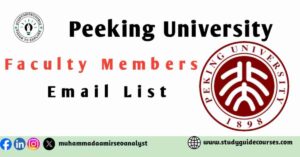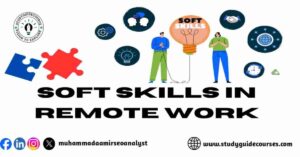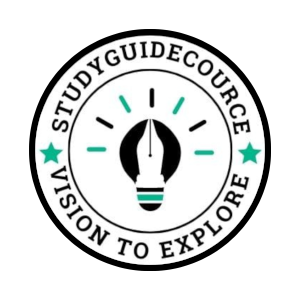Table of Contents
1 - Introduction
2 - Setting Clear Career Goals
3 - Lifelong Learning
4 - Upskilling & Reskilling
5 - Building Professional Relationship
6 - Time Management and Productivity
7 - Prioritization Techniques
8 - Finding a Suitable Mentor
9 - Overcoming Challenges and Adversity
10 - Balancing Work and Life
11 - Conclusion
12 - FAQs
1. Introduction
Career development is a long journey that allows everyone to work on their skills, advance in their professions, and achieve their professional aspirations. Whether you’re just starting your career or looking to progress further, adopting effective strategies can significantly impact your success. In this article, we’ll explore essential tips for career development that can help you navigate your journey to a more fulfilling and prosperous professional life.
2. Setting Clear Career Goals
One of the fundamental steps in career development is setting clear and achievable goals. Defining your career path provides a sense of direction and purpose. Setting clear career goals is crucial for achieving professional success. Start by assessing your interests, strengths, and values to determine your career direction. It takes the time to identify your interests, values, and passions.
Defining your career path provides a clear vision for your future. Next, establish specific, measurable, and realistic goals that align with your aspirations. Break these goals into smaller, manageable steps to create a road-map for your career journey. Regularly review and adjust your objectives as circumstances change or new opportunities arise. Seek guidance from mentors or career advisors to refine your goals and gain valuable insights. Tracking your progress and celebrating milestones will keep you motivated. Clear career goals provide focus, direction, and a sense of purpose, helping you stay on track and make informed decisions as you work towards a fulfilling and successful career.
3. Lifelong Learning
Commit to lifelong learning. Stay updated with industry trends, take courses, attend workshops, and read relevant literature to expand your knowledge. Lifelong learning is the continuous process of acquiring knowledge and skills throughout one’s life, extending beyond formal education. It refers a proactive and intentional formulation to personal and professional career development. Lifelong learners seek out opportunities to expand their expertise, adapt to changing circumstances, and stay relevant in a rapidly evolving world

4. Upskilling and Reskilling
Upskilling involves enhancing existing skills to stay current in one’s field. It enables individuals to adapt to new technologies and job requirements without entirely changing their career path. For example, a graphic designer learning new software
Reskilling, on the other hand, is a more significant shift. It involves learning entirely new skills to transition into a different job or industry. This might include a factory worker becoming a web developer.
Both Upskilling and Reskilling are vital for career growth and economic resilience. They empower individuals to remain competitive in the job market while enabling companies to stay agile in an ever-evolving business landscape.

5. Building Professional Relationships
In Building professional relationship Networking is play crucial role, attend industry events, join relevant online forums, and connect with colleagues on platforms like Twitter, Instagram, LinkedIn etc.
Consistency is key to building trust. Meet deadlines, keep promises, and be reliable. Building rapport requires getting to know your colleagues personally, so take time to understand their interests and concerns.
Lastly, be respectful and professional at all times, even in challenging situations. Building professional relationships takes time and effort, but it can lead to valuable connections, career opportunities, and a supportive work environment.

6. Time Management and Productivity
Time management and productivity are essential skills for effectively utilizing your time and achieving your goals. Time management involves planning and organizing your tasks, setting priorities, and allocating the right amount of time to each activity. It helps you avoid procrastination and work efficiently.
Productivity, on the other hand, is the measure of how effectively you can accomplish tasks within the allotted time. It’s about maximizing output while minimizing lost time and effort. To boost productivity, you can use techniques like the Pomodoro method, create to-do lists, eliminate distractions, and delegate when possible.

7. Prioritization Techniques
Concentration on high-impact activities that align with your future and career growth. Prioritization techniques are methods we use to decide what’s most important or urgent in a simple way. They help us choose what to do first. Following mentioned some ways.
To-Do Lists: Write down tasks and decide which ones to do first.
Urgent vs. Important: Sort tasks into two groups: urgent (need to be done now) and important (have a big impact).
Priority Numbers: Assign a number (like 1, 2, 3) to tasks to show their importance.
Value vs. Effort: Consider the value a task brings versus the effort it takes.

8. Finding a Suitable Mentor
Finding a suitable mentor is like finding a helpful guide or teacher who can show you the way in your journey of learning and growing. This is really important because mentors can give you advice, share their knowledge, and support you in your goals.
Imagine you’re trying to learn a new skill or start a career. A mentor can be someone who has experience in that area and can help you avoid common mistakes. They can also introduce you to valuable connections and opportunities.
Having a mentor can boost your confidence and motivation. They can provide feedback and encouragement when you face challenges. They believe in you and your potential, which can be a boost your confidence.
So, finding the right mentor is like having a secret weapon for success. They can help you learn, grow, and achieve your dreams faster and with more confidence. Don’t take easy the power of a good mentor.
9. Overcoming Challenges and Adversity
Overcoming challenges and adversity means facing difficult situations and problems in life and discover ways to conquer them. These challenges can be anything that makes life tough, like health problems, financial struggles, or personal difficulties.
To overcome them, people need to be strong, determined, and positive. They should set goals, make plans, and work hard to achieve them. It’s also important to ask for help when needed, like talking to friends, family, or professionals.
Remember, challenges and adversity are a part of life, and overcoming them can make us stronger and more resilient. So, stay hopeful and keep pushing forward, even when things get tough.
10. Balancing Work and Life
Balancing work and life mean making sure you have enough time and energy for both your job and the other important things in your life, like family, friends, and hobbies. It’s like juggling two balls – work and personal life – and trying to keep them in the air without dropping either one. To do this, you need to set boundaries, prioritize what’s most important to you, and find ways to manage your time and stress so that you can enjoy both your work and your personal life without feeling overwhelmed.
11. Conclusion
In the journey of career development, these essential tips can serve as your compass, guiding you toward professional growth and fulfillment. Remember that career development is a continuous process, and by implementing these strategies, you can take charge of your career and work towards achieving your goals.
12. FAQs:
1- What is the first step in career development?
The first step in career development is setting clear and achievable goals. This includes defining your career path and creating SMART (Specific, Measurable, Achievable, Relevant, and Time-bound) goals to guide your professional journey.
2- Why is networking essential for career development?
Networking is essential for career development as it helps you build professional relationships, discover opportunities, and gain valuable insights from peers and mentors in your industry.
3- How can I maintain a work-life balance while focusing on my career?
Achieving work-life balance involves setting boundaries, managing time effectively, and prioritizing self-care. It’s essential to avoid burnout by taking breaks and pursuing activities outside of work.
4- What role does continuous learning play in career development?
Continuous learning is crucial for staying updated with industry trends and acquiring new skills. It enhances your value in the job market and supports long-term career growth.
5- How can I find a suitable mentor for career guidance?
To find a suitable mentor, identify individuals whose careers align with your goals and values. Approach potential mentors professionally, express your interest in their guidance, and be open to their insights and advice.
For More Detail: Upwork Team by Career Development
Other Related Post: Investment Tips








